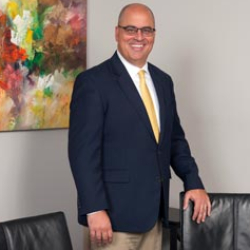People with dementia often lose their money management skills. Unfortunately, this often means that they become victims of scams or otherwise lose their hard-earned retirement money. If you or a loved one has recently been diagnosed with early dementia, we recommend you consult with an elder law attorney.
In this blog post, the Grand Rapids attorneys at Sean Cox Law hope to empower you by showing what you need to be careful of and how to protect yourself financially from the effects of dementia. Right now, you are in the early stages and can get much done.
One of the most significant issues with a dementia diagnosis is that it shifts the focus of your retirement plans. Instead of being able to retire at an age that would allow you to draw maximum Social Security, you may be forced to quit your job. Other dangers to your financial security include forgetting to pay your bills or falling victim to scams. While it may be difficult to think about, much less plan for, you’ll need to start thinking seriously about how you’re going to protect yourself once you slip further into dementia.
WRITE A HEALTH CARE PROXY
Once you are too cognitively impaired to keep making decisions for yourself, your healthcare agent will step up and make medical decisions on your behalf. While you still have your lucidity and good judgment, it’s important to choose someone who you can trust to follow your healthcare proxy and do the right thing for you.
Be sure to have a candid conversation with them about what you want and have an advance directive or medical power of attorney written out to express your preferences for end-of-life care. (Elder law attorneys can help you with this.) Your healthcare agent should have your best interests in mind and respect your beliefs about life, death, and medical care.
WRITE A FINANCIAL POWER OF ATTORNEY
Similar to your healthcare agent, you’ll need to choose someone who’ll have your best interests in mind. A financial power of attorney is responsible for making sure your finances are carried out according to your wishes when you are unable to do so yourself. This means they are given the authority to pay bills, manage investments, file tax returns, and settle other financial matters.
CREATE A LIVING WILL
A living will tells your healthcare agent what life-prolonging medical care you want or don’t want if you are dying and unresponsive. Life-prolonging medical procedures include blood transfusions, dialysis, surgery, and respirator use. A living will is different from a healthcare proxy because it specifically addresses what medical treatments you would or wouldn’t consent to keep you alive. A reputable elder law lawyer can help you create a living will that accurately describe what you want.
The Grand Rapids law firm of Sean Cox Law is dedicated to helping the elderly and their families plan for financially secure futures. If you are interested in our special needs planning, estate planning, or asset protection services, please feel free to reach out to our elder law attorneys in Grand Rapids, MI at (616) 942-6404.

Sean Patrick Cox is a lawyer. Sean practices in two main areas, family law, and elder law. he has represented clients in complex divorce cases since 1994.





